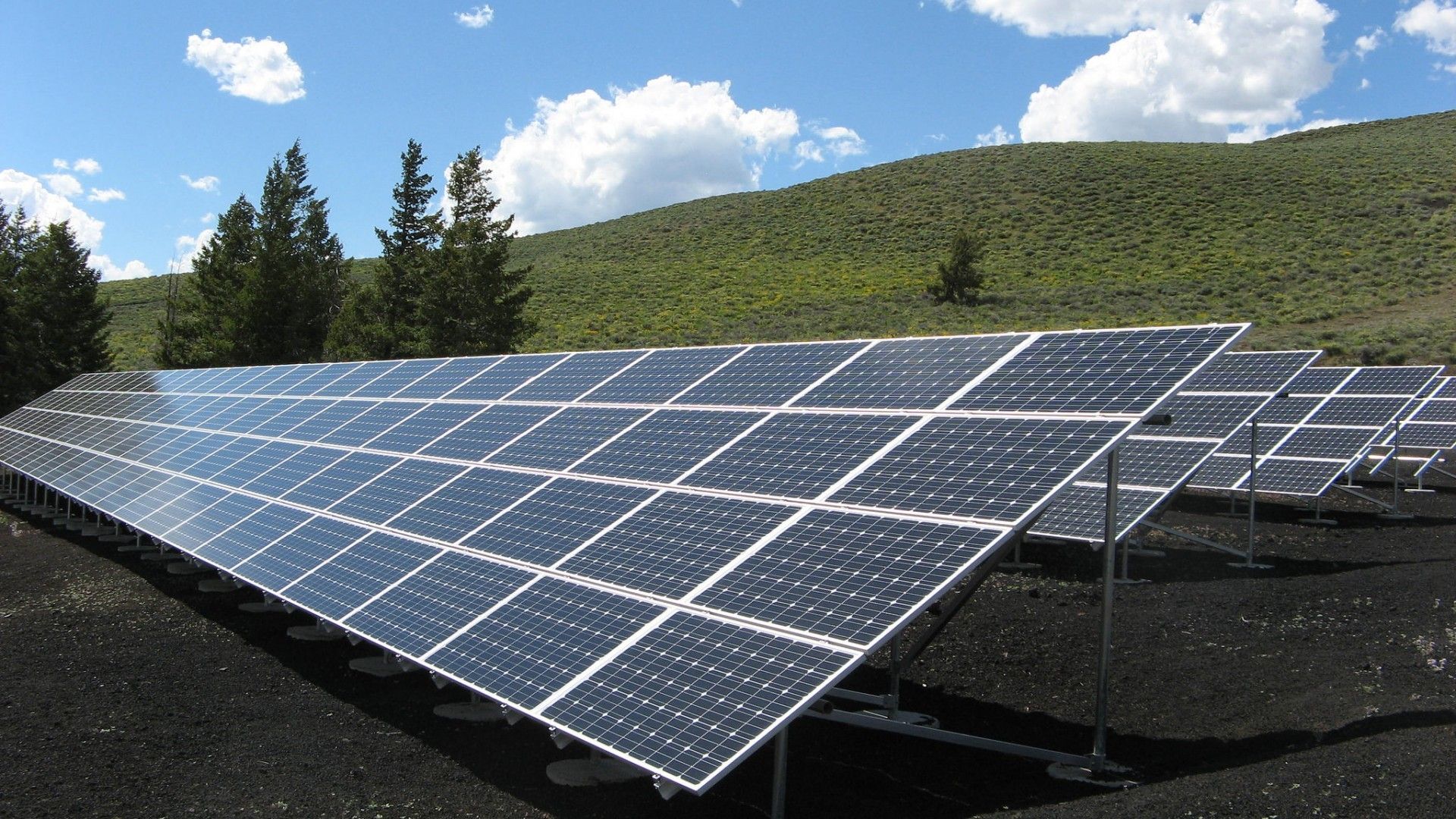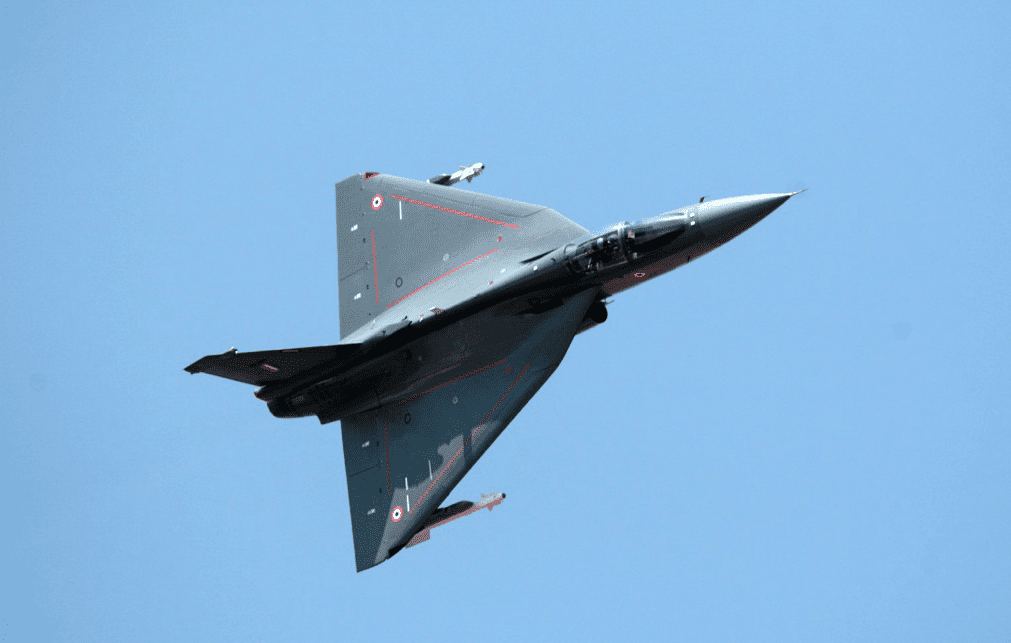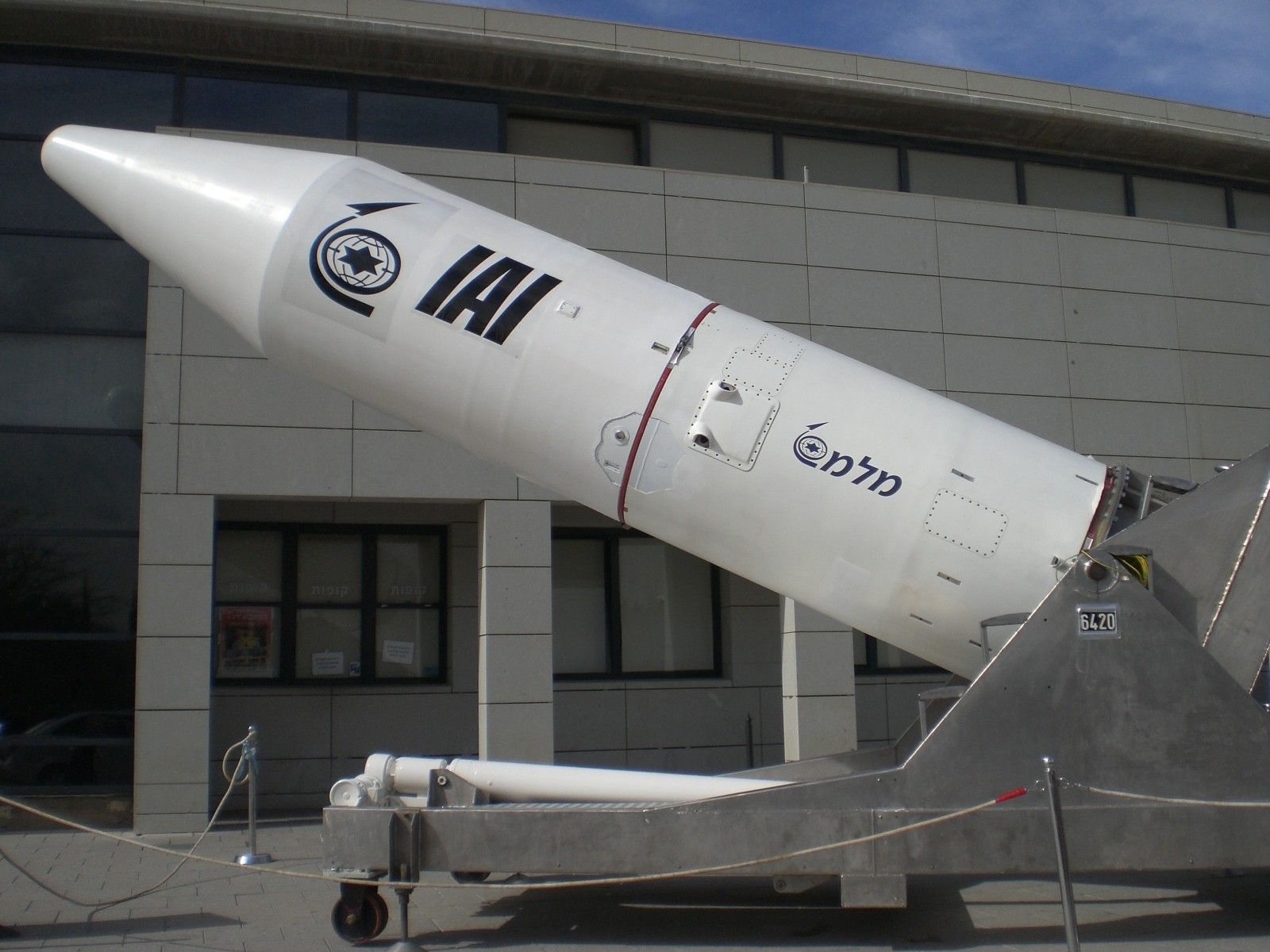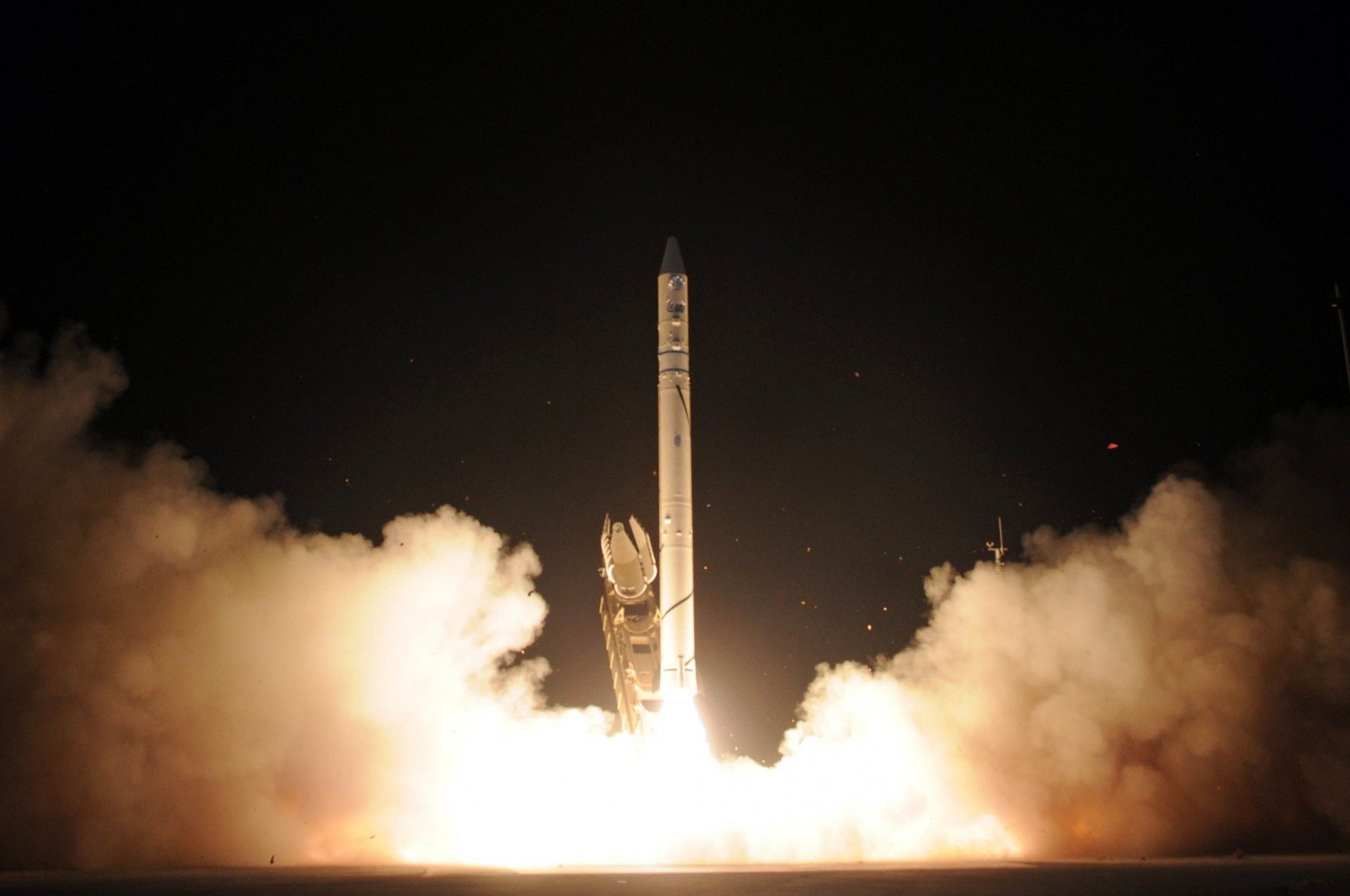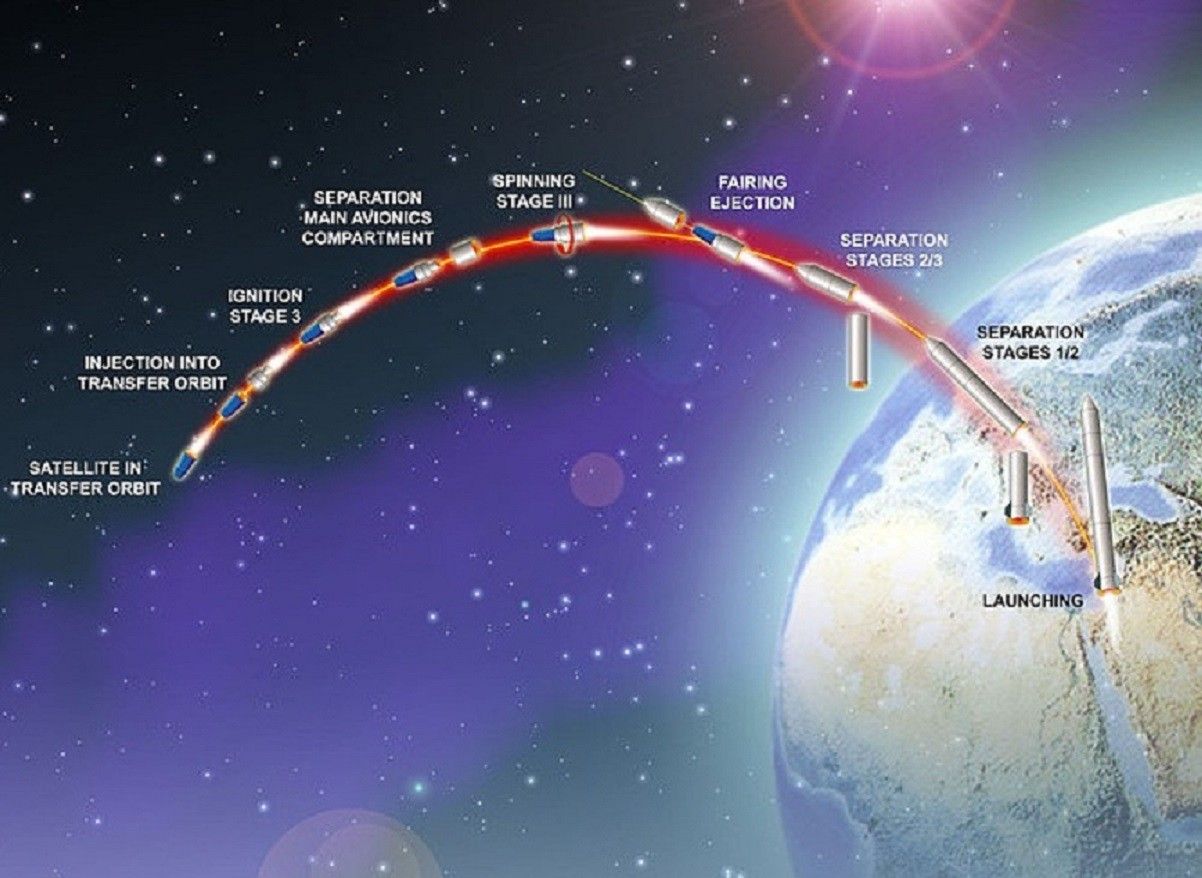Space Challenges For Poland – In Need of Defining A National Strategy
The new government of Poland faces great challenges, within the area of the space sector, which has been – so far – disregarded. The investment within that scope is being currently covered by an amount of EUR 100 million per annum. The money is being provided from the Polish budget and from the European Union. The funds are going to be used to enhance the Polish defence sector, including the deterrence systems. Investments in the fields of satellite communications and Galileo European Navigational System, as well as the civilian programmes, have numerous prospects of providing income for the Polish economy. - Currently, the most important and the most desired space programme that could enhance the security of Poland is the strategic programme, the aim of which would be to create a satellite-based optronic Earth observation system - as it was noted by Brigade General Adam Sowa, former Deputy Executive Director of the European Defence Agency.
Space Challenges
The new government of Poland is facing numerous challenges related to the space programmes. Poland, never before, had so much money at its disposal, within the space sector. The investment within that scope is being currently covered by an amount of EUR 100 million per year. The money is being provided from the Polish budget and from the European Union. Increased financing in the upcoming years cannot be ruled out. On the other hand, the Polish needs are also significant, which is related to the fact that space was being – so far – a disregarded sphere, particularly when it comes to the issues related to defence and security. Currently, in the light of the worsening security situation in the direct vicinity of Poland, as well as within the context of the fact that Poland pursues advanced deterrence programmes (above all – the cruise missiles), the new government is going to have to start a number of new initiatives within that sphere.
At the same time, as Poland entered the structures of ESA in September 2012, the Polish industry entered the market of contracts realized within the scope of the European space programmes. Within the scope of the five year-long agreements programme, related to the fact that Poland joined the European Space Agency, at least 45% of the contribution (contained in an amount of ca. EUR 30 million) is to be returned to Poland, in a form of the realized agreements. Poland may also expect to receive significant funds related to the European programmes (e.g. Horizon 2020) and national programmes, realized via the National Centre for Research and Development. It is worth noting that the assets related to the space sector, one of the most innovative branches of the economy, have a good return rate - as it has been shown by the examples of France and other Western European states.
Włodzimierz Lewandowski PhD, member of the Scientific Council of the Space Research Centre of the Polish Academy of Sciences told us the following, about the Polish space exploration plans:
Within the scope of the space programmes, determining the degree of Polish involvement in the Copernicus and Galileo programmes should be a priority. In case of the latter programme, the Public Regulated Services area is especially important. Next, I would consider reinforcement of POLSA, both financially, as well as within the scope of human resources. Ultimately, 100 persons, mainly engineers, shall be employed there. Another important programme is the one concerning an optronic satellite, and the related strategy.
Effective POLSA
One of the important tasks for the new government is to finalize the process of organizing the Polish Space Agency, making it possible to consolidate the space initiatives scattered across a variety of organs. According to Lewandowski, the agency shall employ at least 100 persons, primarily engineers. Financing POLSA is yet another important issue. Until now, its budget is contained in an amount of PLN 10 million per annum, however it could be increased by 50%, according to the POLSA’s president, professor Marek Banaszkiewicz. There are also some doubts regarding the location of the POLSA HQ, as at the moment, the agency’s seat has an address in Gdansk. According to the officials, this makes it harder for the agency to cooperate with the Ministries, and with the aerospace market leaders, most of whom conduct their business operations from Warsaw. Here, we should remember that POLSA is cooperating with eight ministries, while the issue of space is touched by all of the ministries.
Reconnaissance Satellite and International Programmes – Key To Reinforce The Defence Capabilities Possessed By Poland
Within the defence sector, acquiring a satellite that could be used to optoelectronically scan the surface of the Earth and which would make it possible to obtain satellite imagery within the visible and infra-red and UV spectra, is the most important challenge. On one hand, such system could be used for military purposes, acting as a reconnaissance asset and offering support for the Polish means of deterrence (long range cruise missiles). On the other hand, such satellite could be used by the civilian services, e.g. by providing data about the natural catastrophes. This is a typical approach towards most of the space programmes that are going to be realized in the future – double purpose, both military, as well as civilian. Currently, it is still a matter of discussion, as to what the scope of involvement of the Polish industry is going to be, within the area of creating this key defensive system for the Polish Armed Forces. Should the programme be implemented, it is going to provide Poland, besides the new developments in the industry, with new reconnaissance capabilities. It may also be used as an asset which will let Poland contribute to the memorandum on MUltinational Space-based Imaging System for Surveillance, Reconnaissance and Observation (MUSIS). Warsaw has been a signatory of the related agreement since 2010. Cost of developing the system is estimated as PLN 700 million.
Brigade General, Adam Sowa, PhD Eng. Former Deputy Executive Director of EDA told us that even if an optronic satellite is a programme which is the most desirable one within the scope of defence and security capabilities that are in possession of Poland, several other programmes are equally important and they, too, shall not be treated with less importance – we should not forget about them:
Currently, the most important and the most desired space programme that could enhance the security of Poland is the strategic programme, the aim of which would be to create a satellite-based optronic Earth observation system, along with the supporting infrastructure on Earth. The Army also intends to acquire a system which would make it possible to observe and track space objects, making it possible to monitor the situation in space, similarly as it happens in case of the national airspace. This system is commonly referred to as a “space thrash” tracking system, however its main purpose would be, obviously, to be in possession of the information related to spy satellites or ballistic missiles, flying over the territory of Poland. In my opinion, regardless of the decisions related to initiation of other, priority satellite programmes, it would also be desirable to consider possible investment in a universal, Polish multi-mission satellite platform of double purpose, supporting both the military, as well as the economy, or the scientists, offering an option of placing a wide spectrum of sensors and functional modules in space.
Poland is also going to have to define its participation in the international programmes. Here, we mean the Copernicus programme realized by the European Space Agency, the aim of which is to monitor the Earth. The said programme involves the Polish Ministry of Environment. Secondly ESA is also realizing a Galileo satellite navigation system programme, constituting a European counterpart of the Global Positioning System. The latter programme is realized by the European Global Navigation Satellite System (GNSS), while the Polish Ministry of Administration and Digitization acts as the contributor. Within that context, as Włodzimierz Lewandowski, PhD suggests, it is quite important for Poland to take part in the GALILEO Public Regulated Service, dedicated solely for the governmental users, providing additional advanced functionalities, unavailable for an ordinary user.
The Polish Army also acts as a partner in the Italian Cosmo-SkyMed reconnaissance programme, involving four small satellites. Due to the Polish contribution in that project, Poland is going to make some infrastructural investments related to a reception station for the above-mentioned system.
Professor Piotr Wolański, PhD Hab. Eng., head of the Polish Academy of Sciences Committee for Space and Satellite Research, notes that there is a great need to provide Poland with independent means of placing the satellites in space.
Poland shall gain independence, when it comes to placing the satellites in orbits. It is important because one may imagine a situation, in which we develop a satellite, we will have that satellite at our disposal, but nobody would be willing to put that satellite into orbit. Such capabilities may be based on the technologies that are being developed by the Space Technologies Center of the Institute of Aviation – the solutions related to high-energy “green” rocket propelling systems based on high concentration hydrogen peroxide (98.5% concentration), or the ILR-33 Bursztyn [Amber] rocket, which is a related development.
READ MORE: Polish Amber In Space
Support for the Entrepreneurs
When it comes to the industrial issues, the POLSA agency is going to realize the tasks related to provision of support for the Polish entrepreneurs, applying to become a part of the European Space Agency. Effective activity within that area may provide the applicants with even a full reimbursement of the costs, in a form of investment realized by receiving funds equal to the amount paid by our country, within the scope of its contribution to the ESA initiatives. Due to the fact that the Aerospace and Space industry is one of the most innovative branch of the industry, every penny spent in that area may offer a multifold return. Moreover, another task is to ensure effective transfer of knowledge, innovations and technologies, between the science and the industry – this is going to be realized through application of the required legal and formal solutions.
It is worth to add that at the moment the Polish companies are already involved in prestigious international programmes, including the Exo Mars mission, PROBA-3 sun research project or “space thrash truck” software development initiative.
Mariusz Andrzejczak, PhD, of the Creotech Instruments S.A. company, notes the need of creating a national strategy referring to the space programmes.
Within the scope of the activities to be undertaken by the new government, in order to support the space industry, I am not going to reinvent the wheel. We shall base our steps on the ESA “Midterm Review” and five points raised by this document. The most important being - creation of a national space programme. Only when a national strategy is present, and when assets are allocated to that strategy, the industry will be aware of the fields on which it should be focused. It is the state that is going to be the first customer, when it comes to the space products. Moreover, better cooperation mechanisms, connecting science and industry, shall be created. Similar conclusions were reached by the parliamentary group dealing with the aerospace issues.
READ MORE: POLSA Wants To Act As An Intermediary Between Industry And Science
Space independence – development of the industry
Challenges Poland is going to face within the area of the space programmes will have a fundamental impact on both the Polish defence policy, as well as on economic development of the country. On one hand, those in power shall provide independence for the Polish space programmes and the international programmes in which Poland is involved, so that there is a certainty that these programmes shall be pursued regardless of the current political situation. Nowadays, uninterrupted access to the satellite based reconnaissance, communications and navigation systems, along with the capability of placing the satellites in space, has a key value, when it comes to the defence-related planning processes. On the other hand, it is equally important to ensure that a wide technology transfer is realized for the Polish industry, so that the assets invested in the space programmes, coming from the budget and the European institutions, make it possible for Poland to achieve economic growth.
